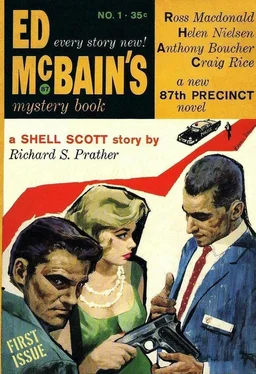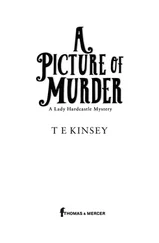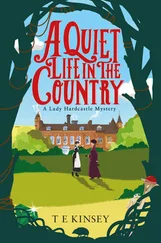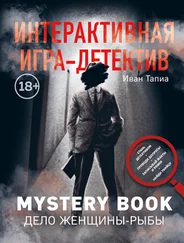Anthony Boucher - Ed McBain’s Mystery Book, No. 1, 1960
Здесь есть возможность читать онлайн «Anthony Boucher - Ed McBain’s Mystery Book, No. 1, 1960» весь текст электронной книги совершенно бесплатно (целиком полную версию без сокращений). В некоторых случаях можно слушать аудио, скачать через торрент в формате fb2 и присутствует краткое содержание. Город: New York, Год выпуска: 1960, Издательство: Pocket Books, Жанр: Детектив, на английском языке. Описание произведения, (предисловие) а так же отзывы посетителей доступны на портале библиотеки ЛибКат.
- Название:Ed McBain’s Mystery Book, No. 1, 1960
- Автор:
- Издательство:Pocket Books
- Жанр:
- Год:1960
- Город:New York
- ISBN:нет данных
- Рейтинг книги:5 / 5. Голосов: 1
-
Избранное:Добавить в избранное
- Отзывы:
-
Ваша оценка:
- 100
- 1
- 2
- 3
- 4
- 5
Ed McBain’s Mystery Book, No. 1, 1960: краткое содержание, описание и аннотация
Предлагаем к чтению аннотацию, описание, краткое содержание или предисловие (зависит от того, что написал сам автор книги «Ed McBain’s Mystery Book, No. 1, 1960»). Если вы не нашли необходимую информацию о книге — напишите в комментариях, мы постараемся отыскать её.
Ed McBain’s Mystery Book, No. 1, 1960 — читать онлайн бесплатно полную книгу (весь текст) целиком
Ниже представлен текст книги, разбитый по страницам. Система сохранения места последней прочитанной страницы, позволяет с удобством читать онлайн бесплатно книгу «Ed McBain’s Mystery Book, No. 1, 1960», без необходимости каждый раз заново искать на чём Вы остановились. Поставьте закладку, и сможете в любой момент перейти на страницу, на которой закончили чтение.
Интервал:
Закладка:
Something over and above “connexions” had deepened their relationship on this second meeting. She wrote him from the Warren Road Hospital, “I have your picture on the locker beside me. The nurses know you are my boy friend, they told me to tell you to come and see me.” But Sangret’s hours away from camp did not fit into hospital visiting hours, and they still had not seen each other when she wrote again, on Sunday, July 26:
“Just one week has passed since I have known you, dear. It seems such a long time. [To be precise, it had been nine days.]... I hope you will try and come to see me, as I want to tell you when I can come out because someone will have to meet me, and you are all I have in the world. Of course if you do not want to come I shall understand, August, but I am sure I shall never understand men. I do not know enough about them, but I can live and learn. Anyway, I am pretty sure we are going to have a tiny wee one, maybe that is why you do not want to come and see me because you think that.”
You will remember that Sangret first heard this news in the voice of some slightly more literate fellow student in the Education Company. You can imagine the reader looking up with some surprised and bawdy remark, and Sangret impassively nodding and gesturing to him to read on.
“I hope not anyway, but, dear, I would not blame you if you did not want to marry me, because I am really too young, and too old-fashioned [Mum in Tunbridge Wells would hardly agree] to be married. I regret what we did now it is too late, for I still say it is wicked. I hope God forgives me, for I am truly sorry, and do not want to do anything wrong really... Oh, dear August, why did we do it? You will not want to marry me anyway, because we hardly know one another, and I do not know anything about babies, but I [here the letter is illegible]... Well, I suppose I shall have to close this letter now, if I want to get it posted, so au revoir (daddy). God bless you always, dear. Joan.”
Was Joan really pregnant? A doctor who examined her in late August was uncertain; the autopsy could not determine the fact because of decay. A missed period made her think so, but this is not conclusive. If she was pregnant, it was more probably by Francis than by Sangret, who had had only one opportunity immediately before the period should have started. But neither of them seems ever to have questioned, from this point on, the facts that she was pregnant and that he was the father.
Released from the hospital sooner than she expected, Joan went out to the camp to find Sangret. “Joan began talking about getting married,” he stated, “and I told her I would marry her.” They arranged to meet the next night in Godalming, and then (Friday, July 31) began a curious sort of sordid idyll unique in the annals of love.
“I took her to the camp, and sat down in the bracken behind the officers’ lines. Joan then told me she had nowhere to live, so I built a small shack from branches, of the trees, put my rain cape and my gas cape over the branches, and then covered this with leaves and twigs. I gathered together a lot of leaves, went to my hut and got my blankets, and took them back to the shack. I returned to camp to answer the roll call at ten o’clock and then returned to Joan. During the time we were there she spoke about getting married, and we talked over our plans. I slept with Joan in the shack that night and had connexions with her again.”
It was this improvised babes-in-the-woods shack which the press was later to insist on calling a “wigwam.” Sangret never used the word, and it was probably more than a century since his half-French ancestors had lived in the ancient tribal dwellings; but “The Wigwam Murder” made a sensational journalistic catch-phrase.
For more than three weeks Joan slept in this shack and Sangret joined her every night, until they were discovered by a pair of provosts, who routed them with a warning. Sangret simply built another shack/“wigwam,” behind the sergeants’ lines this time. When the provosts discovered that he was still keeping a woman in camp, Sangret wound up in the guardhouse and Joan was sent back to the hospital in Guildford, which seems to have served also as a sort of detention home for girls who did not quite belong in jail.
This interruption was not without its benefits. The commanding officer turned amiable when he learned that Sangret intended to marry the girl. He explained the technicalities involved, which included getting the consent of the Canadian Army (a long and tedious task) and that of Joan’s mother (probably an impossible one, though Joan was optimistic), and gave Sangret £5 to help support the girl in the meantime. The sergeants at the camp began planning a fund for the young couple. And in the hospital Joan could at last enjoy hot baths and a chance to wash her only garments.
But even hot baths pall, and Joan soon slipped out of the hospital to rejoin Sangret — on August 28, his twenty-ninth birthday. This time he found, rather than built, a nest: what he called “an old shed” but was actually the ruined cricket pavilion of Thursley Cricket Ground. (“If one may say so,” observed prosecutor Neve at the trial, “it looks a very delightful cricket ground.”) There they lived until mid-September.
At night Sangret would buy or scrounge food and bring it to Joan. Sometimes they went blackberrying and ate the berries or sold them to the officers’ mess. During the day Joan had time on her hands. At first she got a job, but soon lost it. Then she hung around Godalming in the daytime. But she was more and more drawn to her home (shack or cricket pavilion) and finally spent most of her time there, dreaming and praying and waiting for Sangret and chatting amiably with passing soldiers.
“At first,” said Sangret, “when I slept with Joan I used to have connexions with her sometimes two or three times a night and later on sometimes not at all.” They had reached a state of intense need to be with each other even in the absence of sexual hunger — which may be one definition of love.
Joan wrote to Sangret from the hospital on August 24, “I will never regret what we have done, we have had some good laughs, and tears, too. (Oh! Burning wood, the loveliest smell in the world.) I will never forget that, will you?... I am so used to talking to you, and then listening to you groaning to yourself because I would not let you sleep. When I turned over I missed you putting your arms around me. I never thought it would be so lonely... We have always been together until now. [For less than a month then; but always never dates beyond the beginning of love.] The old fire in the evenings and the blackberries and heaps of little things we used to do. The guards that used to watch us through their field glasses as we walked across the fields through the heather. We have so many things to think about and to laugh at.”
Good laughs... and tears, too. One night at the pavilion, Sangret stated, “Joan got up and went outside to make water and when she came back she said to me, ‘Do you know what I have been doing out there?... I have been praying to God. I was asking God, I would like to die.’ She was crying, and I said to her, That is not a nice thing to wish for.’ She said, ‘I don’t like this suffering, I have no place to live.’ ”
But in her daylight hours she scribbled happily on the walls of the pavilion: intertwinings of his name and hers (as Mrs. Sangret), crude sketches (such as one labeled Our little grey home in the West), scraps of poems, and, from memory, a long prayer beginning O Holy Virgin in the midst of all thy glory we implore thee not to forget the sorrows of this world...
Then there was the matter of jealousy. Soldiers would keep passing by, and would feel a not unnatural interest in a girl alone. At least twice Sangret arrived while she was still visiting, once with a Sudeten German and once with an American. Both times he was angry; and in the case of the American, with good cause. Private Deadman, U.S.A. (who thought the cricket grounds were a bowling green), had made quite a definite pass at Joan — which he explained at the trial, with comically incredible highmindedness, as only an attempt to see whether “she was a decent sort of girl” — and been turned down cold. But there was no violence in Sangret’s proprietary anger, just an impassive sullenness.
Читать дальшеИнтервал:
Закладка:
Похожие книги на «Ed McBain’s Mystery Book, No. 1, 1960»
Представляем Вашему вниманию похожие книги на «Ed McBain’s Mystery Book, No. 1, 1960» списком для выбора. Мы отобрали схожую по названию и смыслу литературу в надежде предоставить читателям больше вариантов отыскать новые, интересные, ещё непрочитанные произведения.
Обсуждение, отзывы о книге «Ed McBain’s Mystery Book, No. 1, 1960» и просто собственные мнения читателей. Оставьте ваши комментарии, напишите, что Вы думаете о произведении, его смысле или главных героях. Укажите что конкретно понравилось, а что нет, и почему Вы так считаете.












